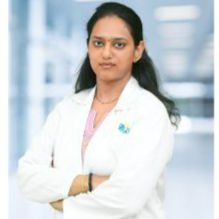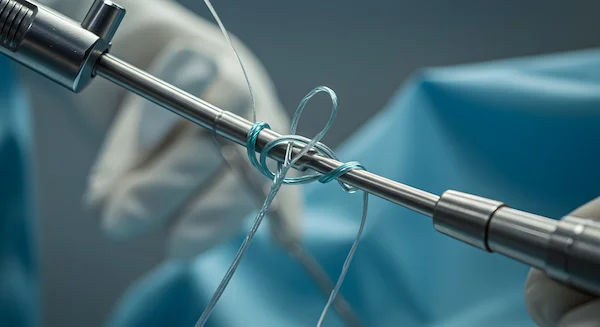Tourette Syndrome Overview and Management
Learn about Tourette Syndrome, a neurological disorder characterized by involuntary tics. Explore its symptoms, causes, and effective management strategies to improve quality of life.


Introduction
Living with Tourette Syndrome (TS) can be challenging, but understanding the condition and learning how to manage it can make a big difference. If you or someone you know has TS, this article will help you understand the basics, recognize symptoms, and explore ways to cope effectively.
What is Tourette Syndrome?
Tourette Syndrome is a neurological disorder that causes repetitive, involuntary movements and sounds called tics. These tics can range from mild to severe and usually begin in childhood (between ages 2 and 15). While TS can be lifelong, symptoms often improve in late adolescence or adulthood.
Consult a Neurologist for the best advice
Common Symptoms of Tourette Syndrome
Tics are the main symptom of TS and can be classified into two types:
1. Motor Tics (Movement-Based)
- Blinking repeatedly
- Shrugging shoulders
- Jerking the head or limbs
- Grimacing
2. Vocal Tics (Sound-Based)
- Throat clearing
- Sniffing
- Grunting
- Repeating words or phrases (sometimes even inappropriate words, known as coprolalia, though this is rare)
Tics can change over time; new ones may appear, while old ones fade. Stress, excitement, or fatigue can make them worse.
What Causes Tourette Syndrome?
The exact cause of TS is unknown, but research suggests it may involve:
- Genetics – TS often runs in families.
- Brain Chemistry – Differences in neurotransmitters like dopamine may play a role.
- Environmental Factors – Infections or complications during pregnancy might contribute.
It’s important to know that TS is not caused by bad parenting or psychological weakness.
How Does Tourette Syndrome Affect Daily Life?
While TS itself isn’t life-threatening, it can impact:
- Social Interactions – Some people may feel embarrassed or face teasing.
- School or Work – Tics can be distracting, making concentration difficult.
- Emotional Well-being – Anxiety, depression, or low self-esteem may develop.
However, many people with TS lead successful, fulfilling lives with the right support.
Managing Tourette Syndrome
There is no cure for TS, but treatments and lifestyle changes can help manage symptoms.
1. Medical Treatments
- Medications – Doctors may prescribe drugs to reduce severe tics (e.g., antipsychotics or ADHD medications if needed).
- Behavioural Therapy – Habit Reversal Training (HRT) helps patients recognize tic triggers and replace them with less noticeable movements.
2. Lifestyle & Self-Care Tips
- Reduce Stress – Stress worsens tics, so relaxation techniques like deep breathing, yoga, or meditation can help.
- Get Enough Sleep – Fatigue can increase tics, so aim for 7-9 hours of sleep.
- Stay Active – Exercise helps reduce stress and improves mood.
- Healthy Diet – Some people find that caffeine or sugar worsens tics, so monitor food triggers.
3. Support & Awareness
- Educate Others – Helping friends, teachers, and coworkers understand TS reduces stigma.
- Join Support Groups – Connecting with others who have TS can provide emotional support.
When to See a Doctor?
If tics:
- Are frequent, severe, or interfere with daily life
- Cause pain or self-injury
- Lead to emotional distress
Consult a neurologist or psychiatrist for proper diagnosis and treatment.
Conclusion
While Tourette Syndrome can present daily challenges, understanding the condition and exploring effective management options can greatly improve quality of life. With the right support, individuals with Tourette’s can lead fulfilling, productive lives. Don’t hesitate to reach out; help is available!
Consult a Neurologist for the best advice
Consult a Neurologist for the best advice

Dr. H Rahul
Neurologist
10 Years • MBBS, MD(Gen. Med.), DM(Neuro)
Secunderabad
Apollo Hospitals Secunderabad, Secunderabad
(100+ Patients)

Dr. Nipun Puranik
Neurologist
8 Years • MBBS MD, DM
Indore
Apollo Hospitals Vijay Nagar, Indore
Dr. J C Rasmi Reddy
Neurologist
5 Years • M.B.B.S, M.D, DrNb in Neurology
Nellore
Apollo Speciality Hospitals, Nellore

Dr. Gangula Charvitha Reddy
Neurologist
6 Years • MBBS, MD DM NEUROLOGY, SCE NEUROLOGY ( RCP-UK).
Hyderabad
Apollo Hospitals D R D O kanchanbagh, Hyderabad

Dr. Meghna Pawar
Neurologist
8 Years • MBBS, MD, DrNB NEUROLOGY
Bhopal
Apollo Sage Hospitals, Bhopal
Consult a Neurologist for the best advice

Dr. H Rahul
Neurologist
10 Years • MBBS, MD(Gen. Med.), DM(Neuro)
Secunderabad
Apollo Hospitals Secunderabad, Secunderabad
(100+ Patients)

Dr. Nipun Puranik
Neurologist
8 Years • MBBS MD, DM
Indore
Apollo Hospitals Vijay Nagar, Indore
Dr. J C Rasmi Reddy
Neurologist
5 Years • M.B.B.S, M.D, DrNb in Neurology
Nellore
Apollo Speciality Hospitals, Nellore

Dr. Gangula Charvitha Reddy
Neurologist
6 Years • MBBS, MD DM NEUROLOGY, SCE NEUROLOGY ( RCP-UK).
Hyderabad
Apollo Hospitals D R D O kanchanbagh, Hyderabad

Dr. Meghna Pawar
Neurologist
8 Years • MBBS, MD, DrNB NEUROLOGY
Bhopal
Apollo Sage Hospitals, Bhopal



.webp)
